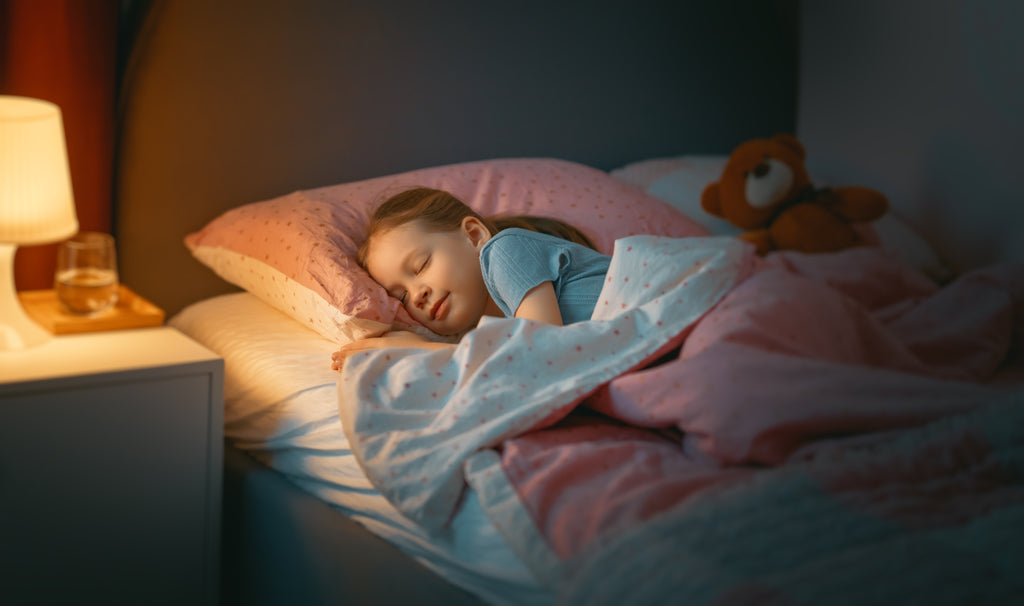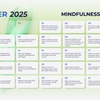Children and Sleep: Understanding the Crucial Role of Rest in Mental Health

Sleep is a fundamental aspect of human life, vital to physical, emotional, and mental well-being. Quality sleep is even more critical for children, as their developing brains and bodies require adequate rest to function optimally. In this blog post, we will delve into the importance of sleep for children's mental health, focusing on the impact of sleep on stress levels and the ability to concentrate. Understanding these connections will empower parents, educators, and caregivers to prioritize sleep as essential to children's well-being.
The Science of Sleep
Sleep is a natural, recurring state of reduced consciousness that allows the body and mind to rest and recover. Sleep serves several crucial functions in children, including memory consolidation, brain development, and hormonal regulation. The National Sleep Foundation recommends varying amounts of sleep depending on a child's age: infants (0-3 months) need 14-17 hours, infants (4-11 months) require 12-15 hours, toddlers (1-2 years) need 11-14 hours, preschoolers (3-5 years) need 10-13 hours, and school-age children (6-13 years) should have 9-11 hours of sleep per night.
The Link between Sleep and Mental Health
Adequate sleep is directly connected to children's mental health and emotional well-being. When children do not get enough sleep, they are at a higher risk of experiencing mood swings, irritability, and emotional instability. Additionally, insufficient sleep can exacerbate existing mental health conditions, such as anxiety and depression.
Sleep and Stress
Stress is an inevitable part of life, even for children. However, sufficient sleep can act as a buffer against the harmful effects of stress. When children get the recommended amount of sleep, their stress hormone levels remain balanced, allowing them to cope better with challenging situations. On the other hand, sleep deprivation can lead to increased stress hormones, making it harder for children to regulate their emotions and manage stress effectively.
The Role of Sleep in Focus and Cognitive Function
A well-rested child is likelier to have improved concentration, attention, and overall cognitive function. Sleep is critical in memory consolidation, helping children retain and recall information effectively. Studies have shown that children consistently get enough sleep, perform better academically, and exhibit improved problem-solving skills.
Sleep Disorders in Children
Not all children experience restful sleep. Sleep disorders like insomnia, sleep apnea, and restless leg syndrome can significantly impact a child's mental health and overall well-being. Parents and caregivers must recognize the signs of sleep disorders and seek professional guidance to address these issues effectively.
Creating a Healthy Sleep Environment
To promote healthy sleep habits, creating a conducive sleep environment for children is essential. This includes establishing consistent bedtime routines, minimizing screen time before bedtime, ensuring a comfortable and quiet sleep space, and avoiding caffeine and heavy meals close to bedtime.
Nurturing Emotional Regulation through Sleep
Sleep plays a pivotal role in emotional regulation, especially in children. Children who get enough sleep are better equipped to manage their emotions, communicate effectively, and develop strong social skills. A lack of sleep, however, can lead to emotional dysregulation, making it challenging for children to cope with everyday stressors and maintain healthy relationships.
The Impact of Technology on Children's Sleep
The pervasiveness of technology in children's lives has raised concerns about its impact on sleep. The blue light emitted by screens can disrupt the body's natural sleep-wake cycle, making it harder for children to fall and stay asleep. It is crucial for parents to establish technology-free zones and limit screen time before bedtime to ensure restful sleep.
Strategies for Promoting Healthy Sleep Habits
Parents, educators, and caregivers play a vital role in fostering healthy sleep habits in children. Some effective strategies include setting consistent bedtimes, encouraging regular physical activity, offering relaxation techniques before bedtime, and engaging in calming activities such as reading or listening to soothing music.
The TouchPoint Solution: A Wearable Device for Sleep and Mental Health
The TouchPoint Solution is a wearable device designed to help manage stress, anxiety and improve sleep. The TouchPoint Solution device can help with children's sleep and mental health.
Stress Reduction
The TouchPoint Solution device utilizes a non-invasive technology called bilateral alternating tactile stimulation (BLAST). The device aims to activate the body's natural relaxation response by providing gentle vibrations or haptic micro-vibrations. For children experiencing stress or anxiety, using the device during stressful situations or before bedtime may help them feel calmer and more relaxed.
Anxiety Management: Anxiety is a common issue among children, and the TouchPoint Solution device may offer a wearable tool to help children manage their anxiety levels. The vibrations can be customized to specific settings that help soothe and calm the individual, potentially reducing feelings of anxiety and promoting emotional regulation.
Sleep Enhancement: Sleep disturbances can significantly impact children's mental health and well-being. By using the TouchPoint Solution device before bedtime, children may experience improved sleep quality. The calming vibrations help transition the child's mind and body into a more relaxed state, making it easier for them to fall asleep and stay asleep throughout the night.
Behavioral Support: Some children with sensory processing challenges or attention issues may find the TouchPoint Solution device helpful in managing their behavior. By providing calming sensory input, the device might aid in reducing impulsive behavior or promoting focus and attention during activities.
Non-Intrusive Intervention: The TouchPoint Solution device is non-invasive and does not involve medication, making it a potentially attractive option for parents and caregivers seeking alternative interventions for their children's sleep and mental health issues.
Quality sleep is a cornerstone of children's mental health and well-being. Understanding the links between sleep, stress, focus, and mental health empowers parents and caregivers to prioritize sleep as an essential aspect of children's development. By fostering healthy sleep habits and creating a supportive sleep environment, we can help children thrive emotionally, academically, and socially. Sleep is not just rest; it is a foundation for a healthy and happy childhood. The TouchPoint Solution device can complement these efforts by potentially managing stress and anxiety and improving children's sleep quality.





